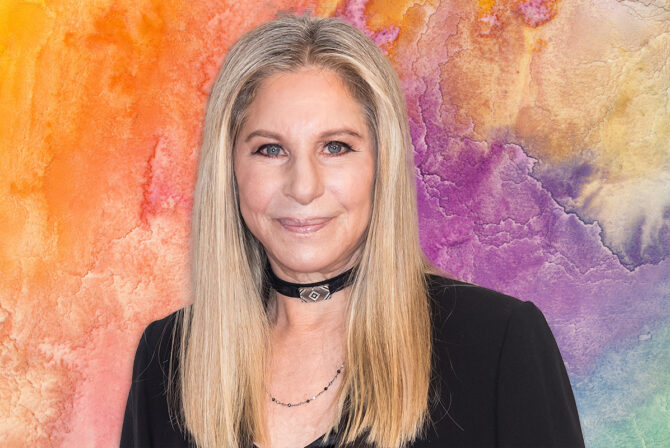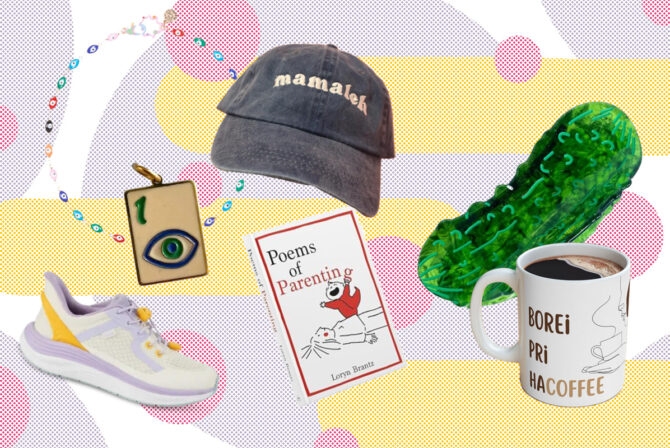I was 21 years old when I learned my father had gone to jail for being a Jew.
I had grown up without a rooted sense of Jewishness. I attended Jewish preschool and lit the menorah every December, but unlike many of my peers, I did not attend Hebrew school, did not have a bat mitzvah, and certainly did not parade the fact that I was Jewish. The first time I stepped foot in a synagogue was for my best friend’s bat mitzvah, and I am almost certain that my middle school friends did not even realize that I was Jewish.
There was no mention of Jewishness around my house apart from the hazy antisemitism that clouded my father’s happy memories of his childhood in the Soviet Union. My father grew up in Baku, the capital of Azerbaijan, a country that had taken in many Jewish refugees during World War II and that had a history of being friendly to Jews despite its Muslim background. My father, a mechanical engineer, was one of the first people in Azerbaijan to use a modern computer, and in 1991 he took an engineering job at Azerbaijan’s first “tech firm.” His dedication to his work and desire to break from the socialist prescription of keeping everyone poor resulted in an early career victory when he took a relatively senior position at the company. Around the same time, he witnessed the fall of the Iron Curtain, and Azerbaijan became an autonomous state with no set legal process. When a few corrupt officials from his company were accused of fraud and money laundering, a group of antisemitic Azeri executives decided to pin the blame on “that Jew.”
My father describes the nine months he spent in prison as daunting yet enlightening. Through wisdom and resilience, he survived his unwarranted sentence by cunningly gaining the respect of a group of high-profile criminals. Shortly thereafter, following a series of tense phone calls and interviews on the part of my grandparents, he was granted political asylum in America. My grandmother likes to tell the story of how, after enjoying a stable life as a computer engineer in Baku, my father spent every morning of his first year in Chicago frying potatoes at Burger King (he hasn’t touched french fries since). Through the self-actualization that the Jewish tradition taught my father, he regained his professional status as an engineer in America and within 10 years saw his two kids off to private school.
So you might understand why I didn’t grow up very “Jewish.” My parents’ decision to de-emphasize our Jewish background might have been motivated by a combination of shame, fear and trauma. But I certainly felt quite Russian — or, more accurately, Soviet. I grew up on allegorical cartoons that promoted the welfare of the proletariat and restaurants where expats danced to Russian pop music until 2 a.m. We had a Christmas tree in our apartment every December, and I could almost pass as Protestant to my array of WASPy elementary school friends. But instead of celebrating Christmas, we were commemorating Noviy God, the Soviet New Year’s celebration that had moved Christmas to New Year’s in a successful attempt to secularize the holiday. In the Soviet Union, Jews and Christians alike celebrated Noviy God. But try telling your elementary school friends that you’re a Jew whose grandfather dresses up as Ded Moroz, the Russian Santa Claus.
My Soviet identity was confusing enough to explain to my friends, most of whom came from Protestant backgrounds. I struggled too much with my linguistic and cultural identity to even begin to process my Jewishness, so, perhaps as my parents had desired, Judaism remained a latent facet of my identity. And boy, did I struggle with identity. My Russianness meant that I did not fit in with the American kids. My Judaism meant that I did not fit in with the Christian kids. My secular upbringing meant that I did not fit in with the Jewish kids. My Azeri roots meant that I did not fit in with the Russian kids. And somehow I still held an American passport.
Whenever I tell friends I’ve made within the last five years that I was deeply introverted growing up, they chortle in disbelief, but my identity confusion meant that I kept to myself and failed to find any space in which I belonged. I resonated most strongly with being Russian because it was the language we spoke at home, but I felt so alienated from every imaginable cultural space that I retreated into novels and found closer friends in literature than in high school. When I moved to Manhattan to attend Columbia University, I hoped to find community in the English literary scene, only to be thwarted once again as I became cognizant of my conservative political leanings (likely informed by my parents’ suffering under the communist system) within an overwhelmingly liberal space.
By junior year of college, I had given up on the concept of community. I had a sporadic array of friends I had met through clubs, events and classes, but no set group I could retreat to in times of distress. Given my political beliefs and my (perhaps self-inflicted) ostracism, I avoided larger social settings and continued to keep to my books. But during finals week that semester, a classmate I had met in a course called “Russian for Heritage Speakers” invited me to an evening of durak, a Russian card game I had grown up playing. Drawn by the desire to relive warm family memories, I left the library that evening and ventured to the campus Hillel, stepping inside the Jewish center for the very first time.
I sat next to a boy whose black curly hair looked just like my dad’s and who started speaking Russian to me the moment I looked his way. A dark-eyed girl from across the table introduced herself as Maya, the founder of the new Russian-Jewish club. Most of the club’s members spoke a sort of broken Russian that reminded me of my little brother, and they didn’t have a clue what prayers to sing over the menorah. We laughed about our Christmas trees on New Year’s Eve, and I learned that no one there was properly from Russia. The possibility of this sort of secular Judaism, embedded in old Soviet tradition, began to intrigue me.
I attended my first Passover seder at Hillel that April with my new Russian-Jewish friends and came home that spring break showing off my new Hebrew vocabulary to my parents. Maybe it was this accidental stumble upon Judaism that prompted my mother to invite me out to brunch on the cusp of my college graduation and divulge the story of my father’s imprisonment, or maybe she had been waiting for my 21st birthday all along, but either way, the events of that spring endowed me with a cohesive cultural identity: I was a Russian Jew, and the entire reason I existed as a citizen in the freest country on Earth was because of antisemitism. Because my dad had been chased out of his home country for being a Jew. Because I was a Jew.
Judaism, to me, is not so much a religion as it is a cultural identity and a beautiful set of values that have inspired me to always reach higher. It is an identity intertwined with the dictates of nostalgic Soviet traditions; it is a group of people who have never quite felt as if they belonged. The vast majority of Russian Jews faced persecution in the former Soviet Union for their Jewish identity and now reside in either America or Israel, where they are allowed to practice Judaism freely and rediscover their roots as I rediscovered mine.
So when my grandmother burst into tears last month upon seeing the hatred and violence at my alma mater, I felt again what it meant to be a Russian Jew. “We left that country and came to this one,” she pronounced, “so that my grandkids would never feel unsafe or singled out as Jews, and I am ashamed that something I thought I’d never have to deal with again is happening in this country, too.”
Now I rush to every Russian-Jewish cultural event because I have lived vicariously through my father’s pain, and I hold my grandma close every time she is forced to relive what happened to my father through the aftermath of October 7. In my Russian-Jewish community, I have found a group of people who understand what it is like to be fervently connected to Jewish identity without keeping kosher or memorizing Hebrew prayers. Being a Russian Jew is a poignant reminder that we have never quite belonged, but that we find belonging amongst each other — and that no matter what, we must do everything in our power to allow the Jewish people to live on.








